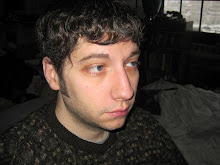I said I'd review the next issue of The Unwritten when it came out, so here it is. I've been a big fan of Mike Carey's writing since I read his series Lucifer, which was probably the only Sandman spin-off to hold a candle to Neil Gaiman's masterpiece. I get the feeling when I read each issue of The Unwritten that I'm reading something really important. That when all is said and done with this series, people are going to consider it one of the classics. You can never be sure about that, and this series is really still just getting rolling at issue 11, but I can't shake the feeling that this is one of the most important comic books being written today.
As I said before, the story is ostensibly about a guy whose father wrote a series of novels (basically the Harry Potter novels) about a boy wizard named Tommy Taylor, which was also his son's name, and the real-life Tommy Taylor is gradually discovering that he may actually be the character his father wrote somehow brought to life, and he actually has magical powers of some sort, which he is slowly learning to use. As the issues have progressed, though, the series has proven to be about much more than that basic premise. It's about the relationship between fiction and reality, which, as a writer, is a topic I find supremely fascinating.
In the two-part story that concluded in this issue, Tommy and his friends (who are suspiciously similar to Ron and Hermione) have found themselves in a world that seems to be the ghost of a Nazi-era German city, and have met a ghostly version of Joseph Goebbels, who becomes more real and solid the more they acknowledge his existence. Eventually, Tommy has to deal with the physical manifestation of a story called Jud Süß, which I had never heard of before, but was apparently originally a novel written in 1925 by a German Jew (Lion Feuchtwanger) based on the life of another German Jew (Joseph Süß Oppenheimer), and was the story of a man who had done bad things but ultimately found redemption in his religion. When the Nazis came to power, Geobbels changed the story and turned it into an antisemitic propaganda film. So in this issue of The Unwritten, the story, Jud Süß, has manifested physically in this ghost world, and it has become unstable, literally turned inside out, by Goebbels' mangling of it. But Tommy discovers that through his power, he can right what's wrong with the story, and make it become coherent again.
The series seems to be almost as much about history as it is about fiction, as it's already delved into the past once before this in a story about Rudyard Kipling and Mark Twain. I can't really say what points this series is trying to make yet, but I'm pretty sure they're important, and I'm definitely going to keep reading it, and recommending it to anyone and everyone.
Wednesday, March 10, 2010
Subscribe to:
Post Comments (Atom)


No comments:
Post a Comment